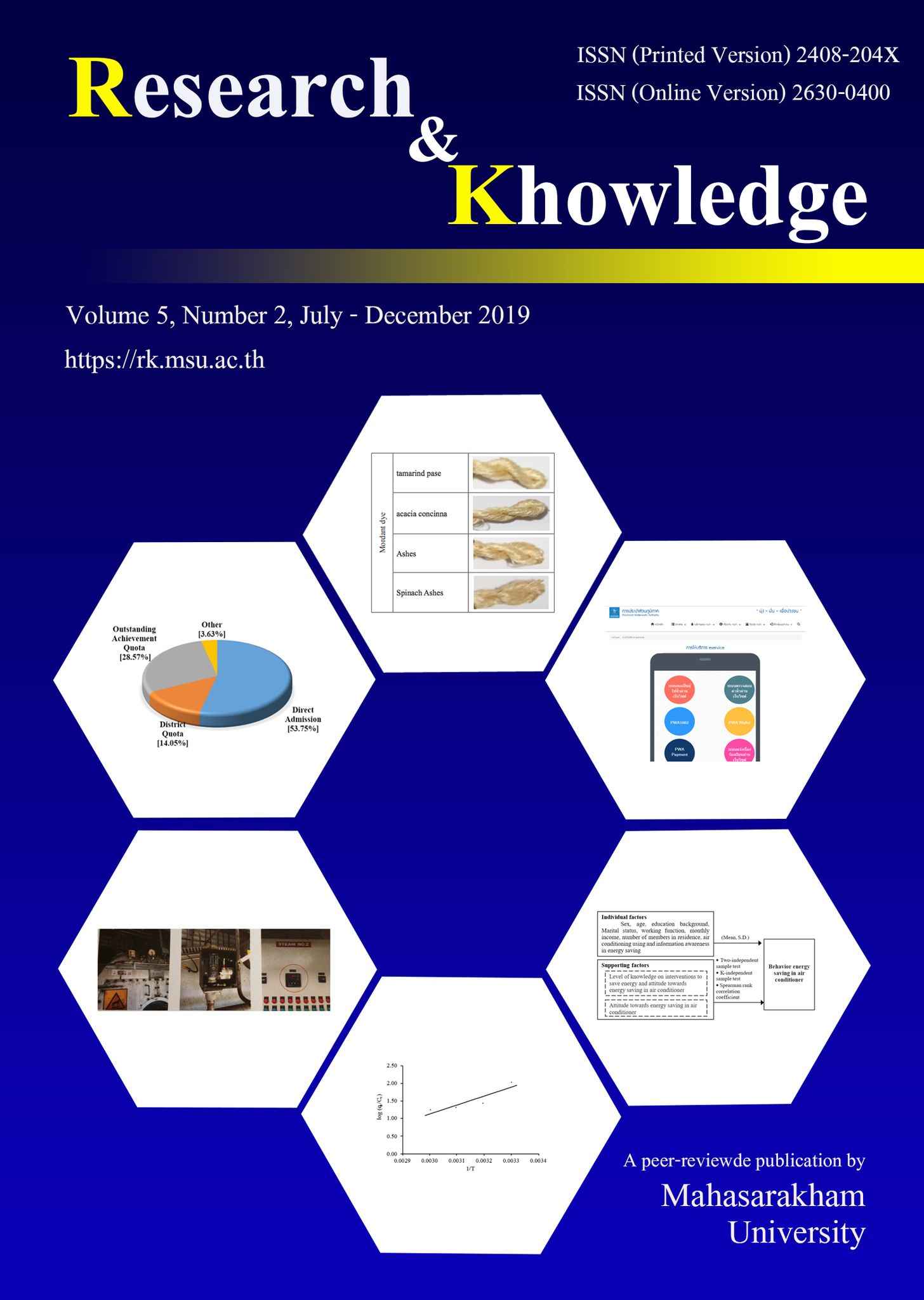Factors Influencing Energy-saving Behavior of Air-conditioner Usage in Sanam Chandra Palace Campus, Silpakorn University
Keywords:
Behavior of Air-conditioner, Energy-saving, Energy conservation measuresAbstract
This research was aimed at identifying the individual factor, level of knowledge and attitude towards the energy saving on the air conditioner which affected behavior in using the air conditioner of students and staff in Silpakorn University, Sanam Chandra Palace campus. The research conducted the survey research and the findings was as follows: 1) The factors affecting the using behavior in energy saving of staff and students in Silpakorn university, Sanam Chandra Palace campus were gender, age, educational background, marital status, monthly income, function, and number of members in residence while the factors not affecting energy saving behavior was information awareness in energy saving 2) the level of knowledge and attitude in energy saving had relation to energy saving at statistical level of significance and 3) university student and staff had the high level of knowledge in energy saving intervention on air conditioner but had level of behavior at medium level.
References
Energy situation of Thailand. Department of Alternative energy development and efficiency,2018.http:// www.dede.go.th/download/stat62
Hori, S., Kondo, K., Nogata, D. and Ben, H. (2013). The determinants of household energy-saving behavior: Survey and comparison in five major Asian cities. Energy Policy. 52, 354-362.
Ma, G., Andrews-Speed, P. and Zhang, J. (2013). Chinese consumer attitudes towards energy saving: The case of household electrical appliances in Chongqing. Energy Policy. 56, 591-602.
Nisiforou, O.A., Poullis, S. and Charalambides, A.G. (2012). Behavior, attitudes and opinion of large enterprise employees with regard to their energy usage habits and adoption of energy saving measure. Energy and Buildings. 55, 299-311.
Nural Sakina Mokhtar Azizi, Suzanne Wilkinson and Elizabeth Fassman. (2015). Strategies for improving energy saving behaviour in commercial buildings in Malaysia. Engineering, Construction and Architectural Management. 22 (1), 73-90.
Ornetzeder, M., Wicher, M., and Suschek-Berger, J. (2016). User satisfaction and well-being in energy efficient office buildings: Evidence from cutting-edge projects in Austria. Energy and Buildings. 118, 18-26.
Paco, A. do and Varejao, L. (2010). Factors affecting energy saving behavior: a prospective research. Journal of Environmental Planning and Management. 53 (8), 963-976.
Zhuang, X., and Wu, C. (2014). Saving energy when using air conditioners in offices-Behavioral pattern and design indications. Energy and Buildings. 76, 661-668.
Taro Yamane, 1973, Statistics: An introduction Analysis, 3 Edition, Newyork. Harper and Row publication.
Downloads
Published
How to Cite
Issue
Section
License

This work is licensed under a Creative Commons Attribution-NoDerivatives 4.0 International License.









